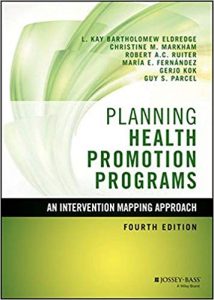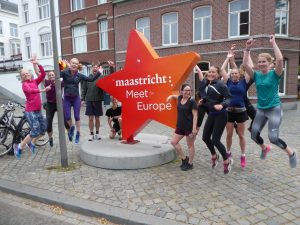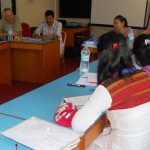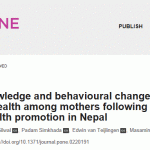For those of you interested in health education, applied psychology or physical activity promotion, read on.
Last week I attended the annual Intervention Mapping course at Maastricht University, which provides a framework for decision-making when planning, conducting and evaluating complex interventions. As a physiologist and early career researcher the course introduced me to using a theory-led, systematic approach when devising multidisciplinary interventions. From my perspective, what to consider when planning an exercise/physical activity programme to improve mobility (and holistically quality of life) for frail older adults living in care home residences. Intervention Mapping comprises the following steps:
- Needs assessments (or logic model of the problem)
- Specifying the ‘change objectives’
- Programme design

- themes and components
- theory- and evidence-based methods for change
- practical application
- Programme production
- Implementation plan
- Evaluation plan
It should be noted that this framework relates mainly to collaborative healthcare projects, involving multidisciplinary team-working with individuals that may include: behavioural scientists, physiologists, Allied health professionals, care home staff and council officials.
As a ‘cog in a wheel’ (i.e. physiologist working within healthcare teams), personally Intervention Mapping has influenced my methodological perspective and will inform my long-term research, but will have little impact in the short-term for laboratory-based studies. For the behavioural scientist or applied psychologist interested in health promotion, the course would be a great benefit. For everyone else considering healthcare projects incorporating behaviour change I wholeheartedly recommend. Plus, Maastricht is a cultural and gastronomical delight.
If you would like further information on the course and framework, let me know.
Dr James Gavin
Department of Sport and Physical Activity
Bournemouth University
Email: jgavin@bournemouth.ac.uk
 Health Promotion intervention planning in rural Nepal
Health Promotion intervention planning in rural Nepal New CMMPH publication on health promotion in post-earthquake Nepal
New CMMPH publication on health promotion in post-earthquake Nepal Health Promotion feedback meeting in Kathmandu
Health Promotion feedback meeting in Kathmandu










 SPROUT: From Sustainable Research to Sustainable Research Lives
SPROUT: From Sustainable Research to Sustainable Research Lives BRIAN upgrade and new look
BRIAN upgrade and new look Seeing the fruits of your labour in Bangladesh
Seeing the fruits of your labour in Bangladesh Exploring Embodied Research: Body Map Storytelling Workshop & Research Seminar
Exploring Embodied Research: Body Map Storytelling Workshop & Research Seminar Marking a Milestone: The Swash Channel Wreck Book Launch
Marking a Milestone: The Swash Channel Wreck Book Launch ECR Funding Open Call: Research Culture & Community Grant – Application Deadline Friday 12 December
ECR Funding Open Call: Research Culture & Community Grant – Application Deadline Friday 12 December MSCA Postdoctoral Fellowships 2025 Call
MSCA Postdoctoral Fellowships 2025 Call ERC Advanced Grant 2025 Webinar
ERC Advanced Grant 2025 Webinar Update on UKRO services
Update on UKRO services European research project exploring use of ‘virtual twins’ to better manage metabolic associated fatty liver disease
European research project exploring use of ‘virtual twins’ to better manage metabolic associated fatty liver disease